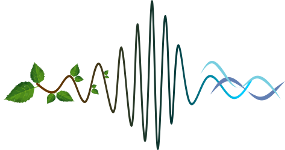We live in an era of widespread use of audio enabled mobile devices, such as smart phones, and heightened public awareness of the need for environmental and ecosystem protection. This offers unprecedented possibilities for the implementation of acoustic-based biodiversity monitoring and soundscape characterisation at a global scale. Data capture at high spatio-temporal resolutions is possible using very large numbers of crowd-sourced acoustic sensors. Such an implementation requires a detailed accommodation for device-specific audio hardware characteristics (microphone directivity, sensitivity and frequency response and differing embedded audio processing algorithms) and for the limitations of device-available computational power, signal acquisition storage and allowed battery consumption. Human-in-the-loop systems offer the potential to utilise user expertise to help disambiguate automated decision making. It also allows us to enhance spatial and temporal information gathering and sensor distribution modelling by suggesting to users locations or routes that maximise likely information gained about the soundscape so reducing uncertainty in the overall soundscape and species distribution maps. This talk will present results from our work to examine the use of acoustic indices based on higher-order moment statistics and information theoretic measures such as spectral flatness and negentropy. We will discuss our testing of methods on mixtures of biophony (birdsong and call recordings) as well as anthrophony and geophony components and the feasibility of gaining reliable soundscape characterisation and automated recognition/characterisation of biophony using a crowd-sourcing paradigm.
|
|
|
|
Tuesday
17
Soundscape I
› 14:30 - 14:45 (15min) › Rouelle Conference Hall
Crowd-sourcing soundscape characterisation and biodiversity monitoring
1 : University of Oxford
Department of Zoology University of Oxford The Tinbergen Building South Parks Road Oxford OX1 3PS United Kingdom -
United Kingdom
2 : University of Oxford
Machine Learning Research Group Department of Engineering University of Oxford -
United Kingdom
3 : Biodiversity Institute, Oxford University
* : Corresponding author
Tinbergen Building, South Parks Rd., OX1 3PS -
United Kingdom
|
| Online user: 1 | RSS Feed |

|

 PDF version
PDF version